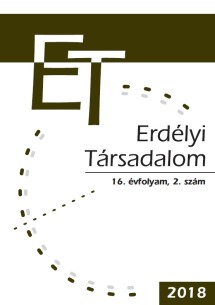„Bejött egy másik öreg orvos, s azt mondja neki, képzeld el, te, a beteg nem tud románul, én nem tudok magyarul, s mégis beszélgetünk.” Krónikus betegek egészségügyi ellátások során tapasztalt nyelvi akadályainak vizsgálata
“Another Older Doctor Came in and Told Him: You Won’t Believe This, the Patient Does Not Speak Romanian and I Do Not Speak Hungarian, yet We Had a Conversation Anyway.” The Study of Language Barriers Encountered by Chronic Patients During Medical Ca
Author(s): Melinda AbrudbányaiSubject(s): Social Sciences, Communication studies
Published by: Presa Universitara Clujeana
Keywords: language barrier;bilingual medical communication;discrimination;coping strategies;
Summary/Abstract: The present study examines the language barriers encountered by chronic patients living in two towns with a majority of Hungarian population (Gheorgheni/Gyergyószentmiklós and Miercurea-Ciuc/Csíkszereda). The research focused on those situations when these patients were given one part of the care in a city in which the majority of the population is Romanian. The interviews conducted with 45 chronic patients and the data analysis aim to reveal whether the target population encountered any language barriers during their medical attendance and if so, how did they manifest, and respectively what kind of coping strategies did they apply in order to overcome the linguistic barriers. The results show that the language barriers did not affect the entire period of their treatment process, but only in its second phase when they received specific medical attendance. The two medical and healthcare patterns prompted different linguistic approaches. The majority of the interviewees had a passive role in choosing the language of the medical attendance during the second phase of their treatment. They mainly underlined the financial and psychological discrimination and disadvantages caused by language barriers. Furthermore, a wide range of coping strategies were adopted in order to overcome the language obstacle.
Journal: Erdélyi Társadalom
- Issue Year: 16/2018
- Issue No: 02
- Page Range: 9-25
- Page Count: 17
- Language: Hungarian

